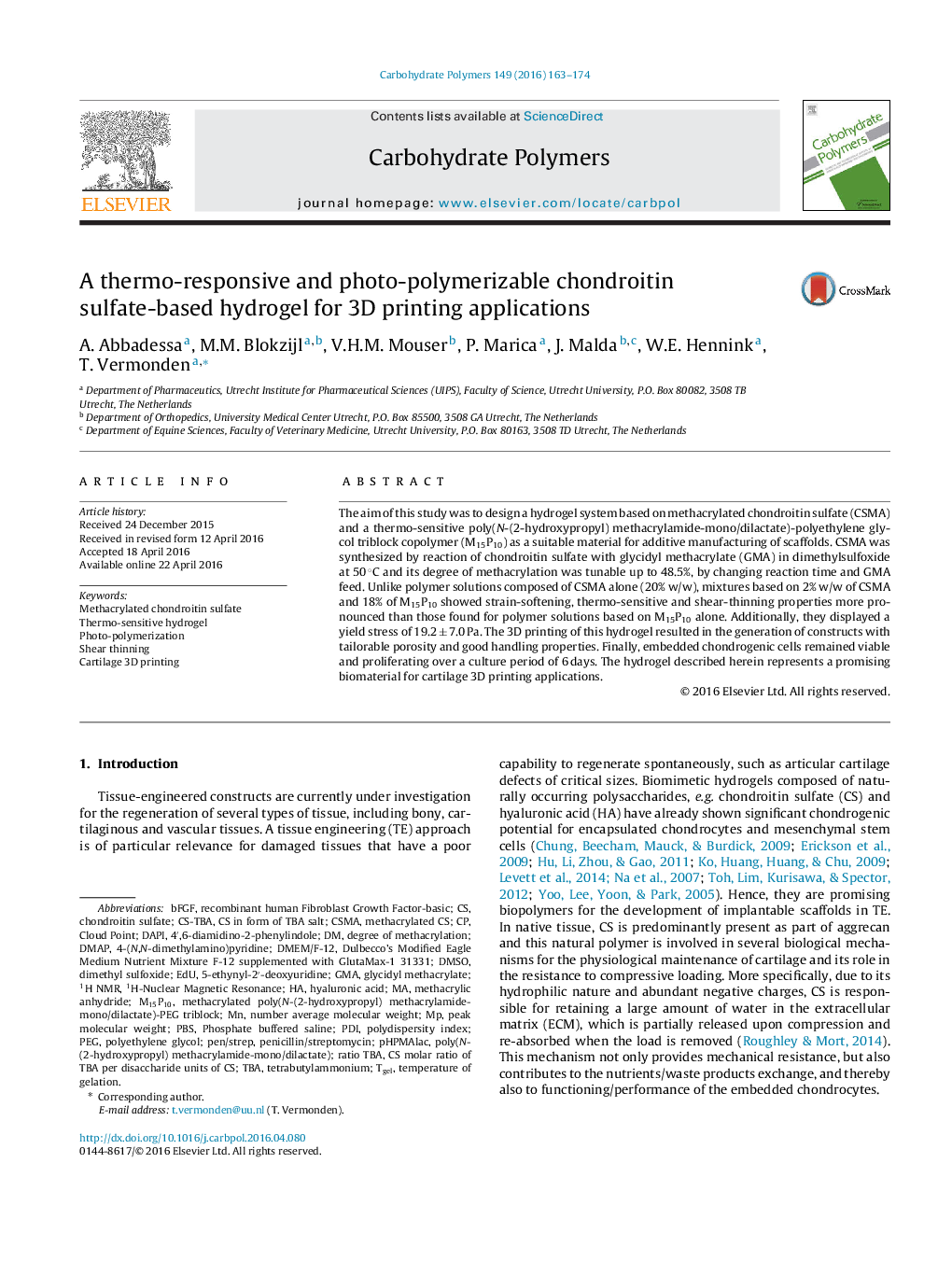| Article ID | Journal | Published Year | Pages | File Type |
|---|---|---|---|---|
| 7785420 | Carbohydrate Polymers | 2016 | 12 Pages |
Abstract
The aim of this study was to design a hydrogel system based on methacrylated chondroitin sulfate (CSMA) and a thermo-sensitive poly(N-(2-hydroxypropyl) methacrylamide-mono/dilactate)-polyethylene glycol triblock copolymer (M15P10) as a suitable material for additive manufacturing of scaffolds. CSMA was synthesized by reaction of chondroitin sulfate with glycidyl methacrylate (GMA) in dimethylsulfoxide at 50 °C and its degree of methacrylation was tunable up to 48.5%, by changing reaction time and GMA feed. Unlike polymer solutions composed of CSMA alone (20% w/w), mixtures based on 2% w/w of CSMA and 18% of M15P10 showed strain-softening, thermo-sensitive and shear-thinning properties more pronounced than those found for polymer solutions based on M15P10 alone. Additionally, they displayed a yield stress of 19.2 ± 7.0 Pa. The 3D printing of this hydrogel resulted in the generation of constructs with tailorable porosity and good handling properties. Finally, embedded chondrogenic cells remained viable and proliferating over a culture period of 6 days. The hydrogel described herein represents a promising biomaterial for cartilage 3D printing applications.
Keywords
DMAPGMADAPIpeak molecular weightMethacrylic anhydridebFGFTBADMEM/F-12tgelPBSPDI1H NMR4′,6-diamidino-2-phenylindole4-(N,N-dimethylamino)pyridine5-ethynyl-2′-deoxyuridinecSMADMSOEdUTetrabutylammoniumHyaluronic acidDimethyl sulfoxide1H-nuclear magnetic resonanceshear thinningpolydispersity indexPhoto-polymerizationPhosphate buffered salinepen/strepCloud pointThermo-sensitive hydrogelNumber average molecular weightpolyethylene glycolPEGPenicillin/streptomycinChondroitin sulfateGlycidyl methacrylate
Related Topics
Physical Sciences and Engineering
Chemistry
Organic Chemistry
Authors
A. Abbadessa, M.M. Blokzijl, V.H.M. Mouser, P. Marica, J. Malda, W.E. Hennink, T. Vermonden,
